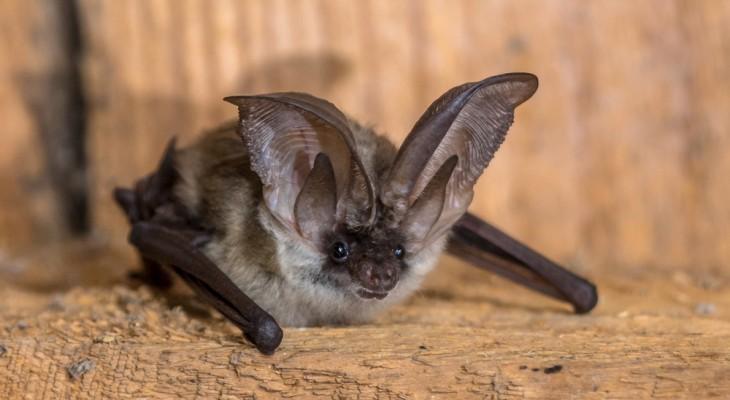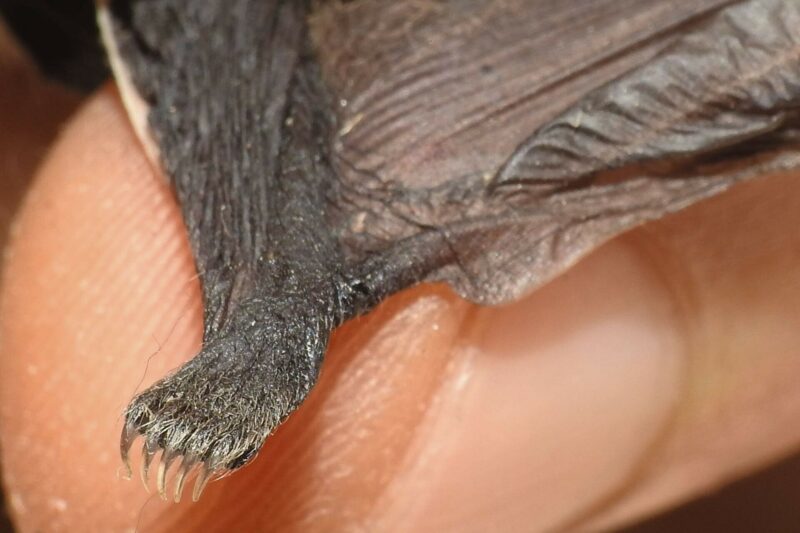Counting bats is important for many reasons. However, animals that are currently hibernating should not be disturbed under any circumstances.
Bats hibernate
“The most species-rich mammals in our country are bats,” he writes. On his website Danube-Drava National Park Directorate. Although everyone usually associates them with caves, they are also found in many other habitats. This could be a church attic, a panel, a forest, or even a cellar or other artificial cavity.
However, in winter, many species hide in the limestone cavities of the Mixic and Vilani Mountains and survive the cold weather.
“The almost uniform climate in the hollows and caves, ranging between 10 and 12 degrees Celsius, provides ideal conditions for sleeping in winter,” explains Tibor Baraj, a national park employee. He adds that hibernation is also necessary because the flying insects that feed on bats disappear at this time.
Animals will die quickly due to lack of food.
During hibernation, their metabolism slows, their body temperature drops to a temperature similar to the surrounding cave, and their heart beats only a few times per minute. From this state, they cannot become active again until after a relatively long period. That's why hidden, hard-to-reach caves provide safe shelter for vulnerable animals.
This is why counting bats is essential
“Since all bat species are protected in Hungary, it is important for conservationists to know which caves contain the largest number of hibernating bats, and they also want to monitor the size of the groups,” explains the expert.
Therefore, cave and bat researchers have visited several underground caves in recent weeks.
The results are mixed.
There were places where more than two hundred and fifty wintering bats were counted, and there were places where not a single animal was found.
“The most common species that overwinter in caves are small and great horseshoe bats, common bats, big-eared bats, and water bats,” says Tibor Baraj. Fortunately, no trace of disturbance or intentional damage was found. They believe that natural causes are likely hidden behind the “empty” caves, which is why long-term follow-up and monitoring is of great importance.
Do not disturb animals during their winter sleep
In a state of hibernation, animals are very weak. If they are activated several times as a result of turbulence, they can consume so much energy that in the spring they will not have the strength to stand on the wings again and will die. Therefore, during the winter, visits to the caves, also known as bat wintering grounds, are limited, and spelunking in these caves is also suspended at this time.
The length and depth of hibernation also depends on the species, they usually do not spend the whole winter motionless, in a cave, for example, they can change their place after the temperature changes.
The expert also draws attention to the fact that there are species – such as the white-fronted dwarf bat – that do not necessarily need a cave to hibernate, but rather a cooler and quieter part of the building will do.
“If we come across an animal in such a hibernating state during the winter, the best thing we can do with it is not to disturb it. By leaving conditions unchanged, we ensure winter calm,” emphasizes the national park employee. He stresses that if we are unable to do so, for example during the restoration of a building we encounter hibernating individuals, we must inform the relevant national park directorate, where nature protection specialists can secure the bats.
Hungarian animal protection















































